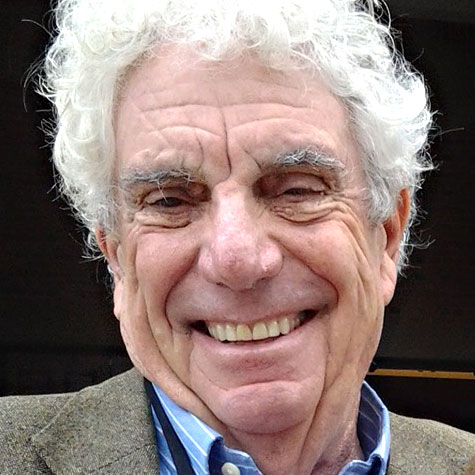The race for the “Who Loves Israel Most” title has been one of the most interesting developments in the Republican presidential election. It’s skewed the contest in a way that turns every vote for a candidate into a vote for Israeli Prime Minister Benjamin Netanyahu and his Likud Party.
As they fight for the support of the Christian conservatives, who are a powerful force in the Iowa Republican caucuses on Jan. 3, the candidates are furiously trying to outbid each other in supporting Israel and Netanyahu’s hawkish policies toward Iran and the Palestinians. The notable exception has been Rep. Ron Paul of Texas, a “non-interventionist” who doesn’t want “us involved in so many messes.”
The competition points up the relationship between conservative Republicans, including pro-Likud Jews, and Evangelical Christians. The relationship is not only shaping the Iowa caucuses, 2012’s first presidential contest, but will continue through the year in the effort to unseat President Barack Obama, whom they wrong-headedly consider anti-Israel.
“President Obama has … chastised Israel,” Mitt Romney told the Republican Jewish Coalition meeting in Washington earlier this month. “He has been timid and weak in the face of the existential threat of a nuclear Iran.”
Obama, however, got a standing ovation from 6,000 Jews at the Union for Reform Judaism conference this month when he said, “It’s hard to remember a time when the administration gave more support to the security of Israel. Don’t let anyone tell you otherwise. It’s a fact.”
We’ll have to wait to see how this plays out in the Jewish community in the fall campaign. A Gallup Poll in September found that 54 percent of Jews approve of Obama’s job performance, compared to his 41 percent approval rating among the entire population.
The Iowa Republican caucuses play a unique part in the presidential election process even though they are attended by just a small minority of the state’s voters. These determined Iowans drive through Midwestern winter weather to homes and other places where the meetings are held. Evangelicals are among the most determined, and, in 2008, they gave former Arkansas Gov. Mike Huckabee, a Baptist minister, a victory over Romney. Huckabee was later sidelined by Sen. John McCain, who became the nominee. That showed how poor a predictor the caucuses are and raises the question of why the media gives them so much importance. But journalists love them — and the compact, easy-to-cover state — so caucuses are the big show of every presidential year.
With the caucuses fast approaching, candidates Romney, Paul, Newt Gingrich, Rick Perry, Rick Santorum and Michele Bachmann are hammering one another. John Huntsman is not campaigning in Iowa.
In this year’s many televised debates, in speeches in restaurants and meeting halls, most of the other candidates are ganging up on Gingrich for his three marriages, marital infidelity, a million-dollar payment for working for the federally backed mortgage agencies and for being, as Romney put it, “zany.” All the candidates are indicting Obama on charges of weakness, gutlessness and general incompetence.
If you are interested in both theology and politics, you can’t beat the Israel issue, which nicely combines the two subjects.
Israel and the Jews are of great religious significance to Evangelical Christians. Central to their beliefs is the notion that all of the Holy Land — Jerusalem, the West Bank, the Settlements, everything — should belong to the Jews. The Rev. John Hagee, the fundamentalist minister who founded Christians United for Israel, said any country trying to “divide up Israel will experience the judgment of the Lord.”
According to his belief, and that of other Evangelicals, Israel must be in Jewish hands before the Rapture can occur. In the Rapture, as Hagee explained to NPR’s Terry Gross in 2006, “In the twinkling of an eye, the dead in Christ shall rise, and we who are alive … shall be caught up to be with the Lord. … That means instantaneously every believer will leave this earth.”
Gross noted, “Everyone I’ve heard talking about the Rapture believes Muslims, Jews, other non-believers will be left behind to face the Tribulation on earth,” a miserable time of catastrophe and death.
“You have to believe in Jesus Christ … yes you do, it is part of the Rapture,” Hagee replied.
In other words, as Tom Tugend wrote in this newspaper in 2010, Rapture believers think, “Jews will either see the light and accept Jesus Christ, or die.”
Many Jews value the support of Evangelical Christians, who use their considerable political influence lobbying for Israel. Sen. Joseph Lieberman and House Majority Leader Eric Cantor, two of this nation’s most prominent elected Jewish officials, have appeared at Hagee’s Christians United for Israel meetings in Washington. Obviously, such American Jews believe the advantages of Evangelical support for Israel are worth the theological downside of linking up with people who feel Jews are doomed unless they accept Christ.
There are, of course, other reasons Jews may oppose Obama. Principally, Jews leaning Republican disagree strongly with the administration’s economic policy. They favor a market-based approach also backed by Netanyahu, who once worked with Romney at the Boston Consulting Group.
Citing Israel, Iran and the economy, a number of them will vote for the Republican nominee.
But others should ask themselves this question: If they lived in Israel, would they vote for the conservative Netanyahu? If not, why should they vote for him here?
Bill Boyarsky is a columnist for The Jewish Journal, Truthdig and L.A. Observed, and the author of “Inventing L.A.: The Chandlers and Their Times” (Angel City Press).























 More news and opinions than at a Shabbat dinner, right in your inbox.
More news and opinions than at a Shabbat dinner, right in your inbox.